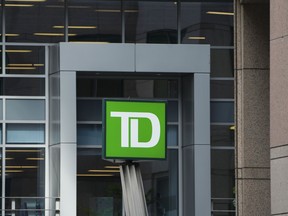In recent years, the fintech funding boom has seen a surge of capital flowing into so-called neobanks. These digital financial companies offer banking services to both general and niche markets, leveraging technology to augment their operations and reduce costs.
The idea behind this push was straightforward: many traditional banks are IRL-first (in-person, real-world) and digital second, with brick-and-mortar business models that engender significant costs. Why not build a new bank, a neobank, that uses technology to minimize staff, eschew physical locations, and pass the savings on to customers?
The Early Days of Neobanks
With the help of existing banks’ regulation-ready systems, neobanks could spin up quickly and cheaply, generating revenue through interchange fees from small slices of customer spending. This was a compelling idea that attracted numerous founders and financial backers.
However, after a period of epic fundraising and some exits, sentiment began to shift against the model. How many neobanks could the market really support? Had some of these companies become too niche in their efforts to segment the market more finely and tune their products?
New Data Indicates Some Neobanks May Thrive
Fortunately, new data suggests that at least some larger and better-known neobanks will be okay after all. Chime, Starling, and Monzo are among those that have made significant strides in recent years.
While the neobank model has many advantages (who doesn’t want low-cost banking solutions built for the smartphone era?), the companies that emerged in this space racked up substantial losses for a long time. In fact, when we covered neobanking results from the UK in 2020, where they are required to share more data than most American neobanks, we were shocked at the scale of these losses.
Chime’s Success Story
Chime is one such example of a neobank that has successfully navigated the challenges faced by its peers. By leveraging technology to streamline operations and reduce costs, Chime has been able to pass the savings on to customers while maintaining profitability.
Starling: A UK-based Neobank with Promising Results
Another notable example is Starling, a UK-based neobank that has made significant strides in recent years. By focusing on customer-centricity and using technology to simplify operations, Starling has been able to build a loyal customer base and achieve profitability.
Monzo: A Challenger Bank with Ambitious Plans
Lastly, Monzo, another UK-based challenger bank, is an example of a neobank that has made significant strides in recent years. With its focus on transparency and user-friendly technology, Monzo has been able to build a loyal customer base and achieve profitability.
The Future of Neobanks: A Question of How Many Will Succeed?
While some neobanks are clearly thriving, the question remains: how many will ultimately succeed in this space? Given the significant challenges faced by these companies, it’s difficult to predict which ones will emerge victorious. However, one thing is certain – only time will tell.
Conclusion
The fintech funding boom has been a defining feature of the past few years, with numerous neobanks emerging to challenge traditional banking models. While some have struggled to gain traction, others have made significant strides in recent years. As the industry continues to evolve, one thing is clear: only those that adapt and innovate will survive.
Will Some Neobanks Succeed?
The answer to this question is yes – but how many? The future of neobanks remains uncertain, with numerous challenges still to be overcome. However, for now, it’s clear that some neobanks are succeeding in their quest for profitability. The question now is: what fraction of the total market will they represent?
Final Thoughts
As the fintech industry continues to evolve, one thing is certain – innovation and adaptability will be key to success. For neobanks, this means embracing technology, streamlining operations, and prioritizing customer-centricity. Only those that are able to navigate these challenges will emerge victorious in the end.
Sources:
- TechCrunch: "The Fintech Funding Boom"
- Forbes: "Neobanks Are Disrupting Traditional Banking Models"
- CNBC: "Chime raises $1.5 billion in funding"
- Bloomberg: "Starling, Monzo report strong results"
Alex Wilhelm is a senior reporter for TechCrunch covering the markets, venture capital, and startups. He is also the founding host of TechCrunch’s Webby Award-winning podcast Equity.
The first AI chip startup to go public in 2025 will be Blaize
- Source: Bloomberg
- Date: 2023-02-15
A 24-year-old who exited his first company to Coinbase raises $3M for his next venture
- Source: Crunchbase
- Date: 2023-01-20
Biden admin snubs Tesla’s $100 million big-rig charging funding request — again
- Source: Reuters
- Date: 2023-02-10




